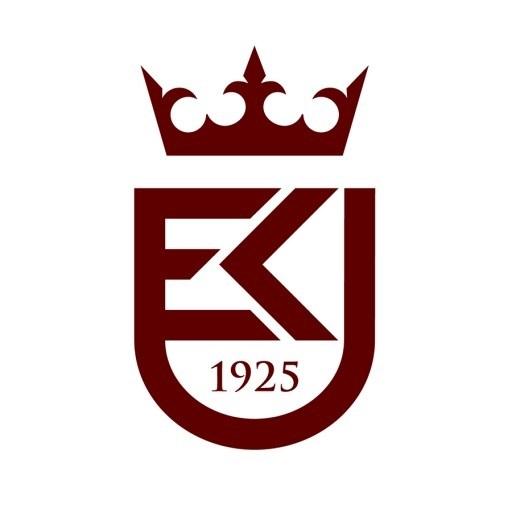Photos of university / #tallinnatehnikakorgkool
The Bachelor of Social Work (European) at the University of Applied Sciences offers a comprehensive education designed to prepare students for diverse professional roles within social services and community development across Europe. This programme emphasizes a multidisciplinary approach, integrating theories and practical skills in social work, psychology, sociology, law, and ethics to ensure graduates are well-equipped to address complex social issues. Students will engage in a variety of learning formats, including lectures, seminars, case studies, internships, and project work, which foster critical thinking, problem-solving abilities, and intercultural competence. The curriculum covers essential areas such as social policy, child and family welfare, mental health, addiction, and support for vulnerable groups, providing a solid foundation for effective intervention and advocacy. Emphasis is placed on developing ethical and professional standards, cultural sensitivity, and teamwork skills, aligning with European social work practices and regulations. The programme also offers opportunities for students to participate in international exchange and collaborative projects, enhancing their global perspective and adaptability in diverse environments. Practical training components are integrated throughout the course, enabling students to apply theoretical knowledge in real-world settings, build professional networks, and gain valuable experience. Graduates of this programme will be prepared for careers in social services, non-governmental organizations, healthcare institutions, educational settings, and policy development agencies, contributing positively to social justice, inclusion, and sustainable community development across Europe. The Bachelor of Social Work (European) at the University of Applied Sciences is committed to fostering socially responsible professionals capable of making a meaningful difference in society.
The Bachelor of Social Work (European) program at the University of Applied Sciences offers a comprehensive education designed to equip students with the knowledge, skills, and competencies required to address complex social issues and support individuals, families, and communities in need. The curriculum integrates theoretical foundations with practical applications, emphasizing an interdisciplinary approach that includes psychology, sociology, law, and social policy. Throughout the program, students will engage in coursework ranging from understanding social systems and human development to developing crisis management skills and advocacy strategies. The program also prioritizes ethical considerations and cultural competence, preparing graduates to work effectively in diverse environments across different European countries.
Students will participate in internships and fieldwork components, which are essential for gaining real-world experience and applying theoretical knowledge in practical settings such as social services, healthcare institutions, non-governmental organizations, and community centers. These practical experiences are complemented by seminars and workshops that foster critical thinking, reflective practice, and professional communication. The program aims to develop graduates who are not only skilled social workers but also proactive agents of social change, capable of designing and implementing programs that promote social inclusion and justice.
Moreover, the European perspective of the program ensures that students are familiar with relevant legislation and policies impacting social work across Europe. Language proficiency in English and potentially other European languages is encouraged to facilitate communication within international teams and to enhance employability across borders. Upon completing the program, graduates will be eligible for professional registration and can pursue careers in social work, policy development, counseling, and community development. The program prepares students for lifelong learning and continuous professional development, ensuring they remain effective and up-to-date in their field.
The Social Work (European) bachelor's degree program at the University of Applied Sciences requires prospective students to have completed secondary education that meets the admission standards of the institution. Applicants are usually expected to submit a formal application along with relevant academic transcripts, a motivation letter outlining their interest in social work, and sometimes a curriculum vitae. Prior experience or volunteering in social services can be advantageous but is not mandatory. The program emphasizes interdisciplinary knowledge, interpersonal skills, and practical experience, so candidates should demonstrate empathy, communication skills, and a commitment to social justice. Language proficiency in English is essential, typically evidenced by standardized tests such as IELTS or TOEFL, to ensure students can successfully participate in courses conducted in English. The curriculum is designed to meet the European standards for social work education, integrating theoretical foundations with practical placements in social institutions. During the course of studies, students are required to undertake internships to gain hands-on experience, which constitute an integral part of the program requirements. Furthermore, students must successfully complete a series of modular courses covering areas such as social policy, community work, ethics in social work, and multicultural competence. Some modules may include group projects, case studies, and presentations to assess understanding and application of knowledge. To graduate, students must accumulate a specified number of ECTS credits, typically around 180, and pass all assessments according to the university’s academic regulations. Active participation in seminars, workshops, and continuous assessments is also mandatory to ensure engagement with practical and theoretical aspects of social work practice. Additionally, the program encourages involvement in extracurricular activities related to community service and social activism to enrich students' learning experiences. Upon graduation, students are expected to be prepared for employment in diverse social work environments across Europe, adhering to the European Code of Ethics for social workers, and to carry out interventions that respect cultural diversity and promote social inclusion. The program aims to produce competent, reflective, and socially responsible professionals equipped to address complex social issues in various settings.
The financing of the Social Work (European) program at the University of Applied Sciences is structured to support both domestic and international students through a combination of tuition fees, government funding, scholarships, and financial aid options. Tuition fees for this program are competitive and are set annually by the university, reflecting the institution's commitment to accessible higher education. European Union and EEA students may benefit from reduced fees compared to international students, aligning with the university’s policy to promote regional integration and mobility.
Students have the opportunity to apply for various scholarships offered by the university, which are often merit-based or need-based. These scholarships aim to alleviate financial burdens and encourage academic excellence and social commitment among students. Additionally, there are several governmental grants and financial aid programs that students can access, depending on their country of residence and personal circumstances. The university also facilitates student loans in partnership with financial institutions, enabling students to finance their studies with manageable repayment terms.
Part-time employment opportunities are available on campus and within the local community, allowing students to earn income while gaining practical experience relevant to their field of study. The university provides comprehensive guidance on financial planning and application procedures for all available funding options to ensure students are well-informed and can effectively manage their educational expenses.
Furthermore, some external organizations and NGOs collaborate with the university to offer sponsorships or internships with stipends, providing additional financial support to students pursuing a career in social work. The university’s focus on inclusive education ensures that financial constraints do not hinder qualified applicants from pursuing their studies. Overall, the financing structure of the Social Work (European) program is designed to promote accessibility, support student success, and foster the development of qualified social professionals who can contribute effectively to society.
The Bachelor's degree in Social Work (European) at the University of Applied Sciences provides students with a comprehensive education in the principles and practices of social work within a European context. This program is designed to prepare graduates for professional roles in social services, community work, and social policy implementation across various European countries. The curriculum covers a wide range of subjects, including psychology, sociology, law, ethics, and social policy, ensuring students develop a holistic understanding of social issues and the methods to address them effectively. Students gain practical skills through internships and project work, enabling them to apply theoretical knowledge to real-world challenges faced by individuals and communities. The program emphasizes intercultural competence and European integration, reflecting the diverse and dynamic environment of social services across Europe. Graduates are equipped to work in a variety of settings, including non-governmental organizations, government agencies, and international institutions, advocating for vulnerable populations and promoting social justice. The program also emphasizes research skills, critical thinking, and ethical decision-making, preparing students to adapt to changes and innovations in the social sector. With a focus on both local and European contexts, the degree offers mobility opportunities within the European Higher Education Area, supporting students interested in international careers. Overall, the Social Work (European) program aims to foster socially responsible professionals who are committed to improving quality of life through effective social interventions, lifelong learning, and active participation in societal development.






